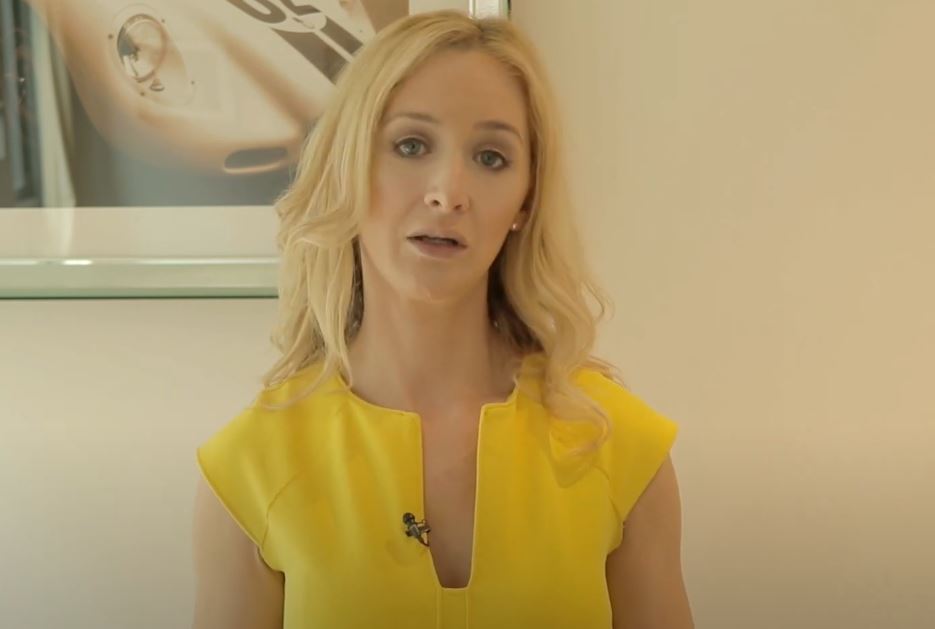Who Is Dr Becky Spelman’s Husband? Age, Height and Marriage Secrets of a Public Psychologist

Few psychologists have consistently captivated the public’s attention like Dr. Becky Spelman. Her appearances on TV panels, podcasts, and clinics are not only educational; they also strike a personal chord with her. Becky uses her personal history, media knowledge, and professional insight to enter conversations with emotional honesty, in contrast to many in her field who keep academic distance.
Who is Dr. Becky Spelman’s husband? is one of the most often searched questions about her, and it has nothing to do with credentials and everything to do with connections. And why are so many people interested in her marriage? During the pandemic, Becky’s home life garnered minor public attention. She is married to Will, a man who has been described as steady and grounded. She described their experience of sharing a small home office as unexpectedly grounding, while others struggled with isolation and distance. This subdued support for domestic harmony felt especially reassuring to someone who frequently talks about emotional transparency.
Dr Becky Spelman – Personal and Professional Profile
| Attribute | Information |
|---|---|
| Full Name | Dr Becky Spelman |
| Place of Birth | Nenagh, County Tipperary, Ireland |
| Estimated Age | 40–41 years (born in 1983 or 1984) |
| Height | Approximately 5 feet 6 inches (167 cm) |
| Marital Status | Married to Will (age 36 as of 2021) |
| Current Residence | London, United Kingdom |
| Clinic | Private Therapy Clinic (Founded in 2011) |
| Practice Location | Harley Street, London |
| Media Appearances | Sky News, Channel 4, The Guardian, The Sun, Embarrassing Bodies, OK! |
Regarding age, Becky Spelman is in her early forties. She represents a generation of mental health professionals who grew up with the modern mental health movement, having worked in the field for more than 20 years. She started her career in Dublin when she was eighteen and went on to earn several degrees, culminating in a doctorate in counseling psychology. Her development, which was characterized by tenacity and clarity, has established her as a very trustworthy voice in the emotionally complex social climate of today.
Her height, which is roughly 5 feet 6 inches, is a minor but intriguing fact that is frequently looked up online. It refers to the rising fame of media psychologists rather than superficiality. Despite her modest size, Becky exudes a poise and presence that draw attention from both clinic rooms and cameras. Her delivery is remarkably clear—never hurried, never cold—whether she is giving relationship advice or breaking down trauma. Audiences are drawn in by this capacity to make even the most clinical subjects relatable.
Her approach of fusing personal narratives with professional frameworks is especially creative. She shares the vulnerable experience of escaping an abusive marriage in one YouTube video. She talks about the emotional toll of “walking on eggshells” and changing her behavior simply to get through each day, not as an expert but as a survivor. Those who are still in such agonizing circumstances can be effectively reached by sharing such unvarnished stories with profound honesty and without any dramatics.
More recently, relatable laughter was generated by her video critique of the so-called “Huberman Husband,” a metaphor for men who are hyper-optimized. She gently questioned how relationship compatibility is about respecting each other’s emotional wiring and goes beyond shared interests, using examples like ice plunging and morning routines. For many viewers, her delivery is remarkably flexible in addressing both romantic dynamics and personal boundaries, and it is both reassuring and thought-provoking.
The opinions expressed about Dr. Spelman’s clinic are remarkably similar. The Private Therapy Clinic, which is situated on Harley Street, is said to have significantly improved in recent years in terms of both patient satisfaction and the range of services offered. Customers mention incredibly effective sessions and kind therapists who use psychodynamic, CBT, and EMDR techniques. The clinic is now a haven of knowledge and science for people dealing with anxiety or trauma.
She hasn’t hesitated to talk about relationships from a financial perspective either. Becky examined research indicating that breakups frequently cost more than weddings during a Sky News segment. In her remarkably straightforward manner, she described how the practicalities of a breakup—furniture, rent, and emotional exhaustion—can leave people feeling both devastated and broke. Instead of making cynical remarks, she offered doable fixes, like budgeting before the emotions get out of control, cohabitation agreements, and used furniture. These suggestions are sensible, safeguarding, and especially helpful in the relationship economy of today.
Becky provides stability and realism for younger generations who grew up with swipes, reels, and emotionally ambiguous situationships. Her Instagram feed never veers into meaningless motivation by striking a balance between longer reflections and self-help soundbites. Her online presence steadily expands, as evidenced by her more than 66,000 followers and thousands more on YouTube. She nevertheless keeps a respectful and personal tone in spite of her reach—not influencer-style, but subtly assured.
Becky Spelman stands out even more due to her expanding network of media outlets and public figures. She adjusts to audiences without losing depth, whether she is writing about rejection therapy for The Guardian or making predictions about Love Island contestants for The Mirror. She maintains clinical credibility while navigating celebrity-driven discourse, much like Dr. Linda Papadopoulos or Dr. Ramani. In a culture where trends tend to fade quickly, this combination has proven remarkably resilient.
It seems that shared presence, rather than performance, is the foundation of her marriage to Will. Becky and Will adjusted during lockdown, when the strain of living together caused many couples to break up. She talked about how their routines were easy and how spending time together was a relief. Without any glitz or dramatic tension, that story felt surprisingly real, emphasizing how true intimacy frequently flourishes in quiet, steady moments.



